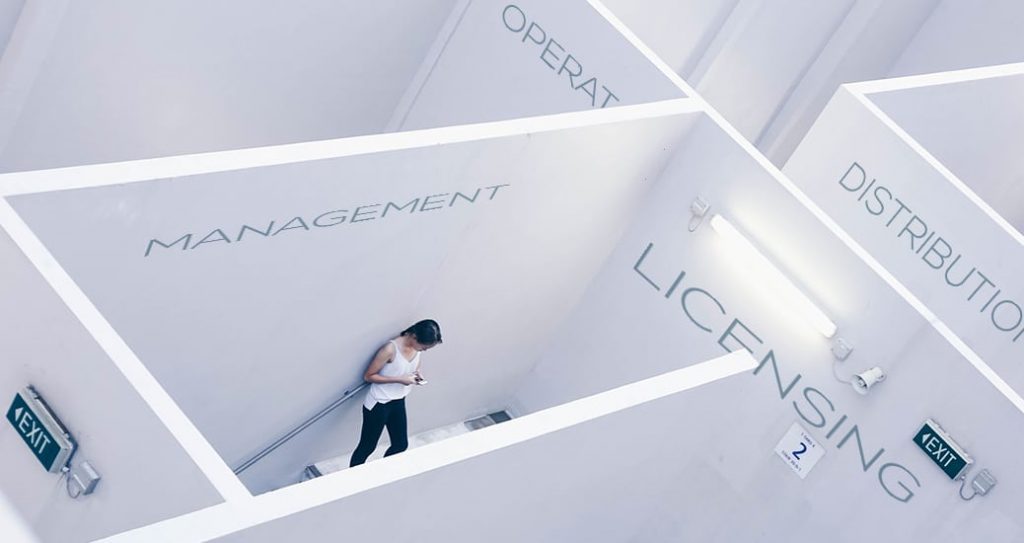Death and taxes. Had to get out that cliché so that we could get down to business. Since we’re still alive, let’s focus on taxes.
To avoid a government shutdown, Congress must pass another spending bill by December 11, 2015. One of the main issues holding up such bill is tax extenders, mainly business tax incentives worth tens of billions.
Such late decisions make it hard for businesses to prepare for tax season which will be upon us in just a few weeks. What we will end up paying will all boil down to decisions made in the next day.
Even without knowing what incentives (and the formula for each) there will be, taxes are still inevitable. If you are a first year business (or looking to go into business), it is likely that you will be surprised when you go to file taxes and find out there are some you had no idea existed. If you have CPA, you will likely be signing IRS forms that look like they were created yesterday.
Here is a rundown of some of the taxes you will have to pay and some that may surprise you.
Employee taxes:
Taxes paid on behalf of employees are a no-brainer. Withholding federal and state income is a must if you are paying them as employees. But are you withholding local taxes?
Some businesses forget that local taxes such as city and county taxes must be withheld for employees. Most software programs will do this for you automatically, but if you are doing this manually, make sure you are doing it properly.
“Some businesses forget that local taxes such as city and county taxes must be withheld for employees.”
You also have to pay your share of taxes on behalf of the employee. Social Security and Medicare taxes are shared contributions. An employer must withdraw a percentage of an employee’s income; however, you also have to contribute a percentage yourself based on the employee’s income.
Contributions to an unemployment fund are also a must. Some employers miss paying the unemployment tax as it is separate from withdraws made from employee income. Some states require employee contribution, but most do not which is why it is sometimes missed. Failing to pay unemployment tax (both federal and state) can wind up costing you big in terms of fines and penalties.
Workers comp is similar to unemployment tax in that most states do not require employee contribution. As such, it is easy to let this one slip through the cracks. This requirement is through the individual state in where you operate your business so you won’t get any direction from the feds on this one.
If you have contractors, then it is unlikely you are withholding the taxes. If you are paying people as contractors, make sure that you abide by the law regarding such, keeping in mind there is different paperwork you will need to file at the end of the year as well.
Sales tax and use tax:
Failure to pay sales and use tax is a great way to have the government lock the front doors of your business. These are requirements that while not overlooked, sometimes are not followed. Most of the time, it is because of a cash flow issue with a business.
“Failure to pay sales and use tax is a great way to have the government lock the front doors of your business.”
Sales tax is collected at the time of the sale while use tax is paid on items that are NOT sold. Here is how it works.
For sales tax, a percentage is charged on each sale according to the state’s percentage. You are responsible for collecting it on behalf of the state and then pay it into the state on a monthly or quarterly basis. Simple right?
Use tax is a little more complicated.
A business is allowed to avoid paying sales tax for items it purchases to “use.” For instance, a salon is able to purchase shampoo, hairspray, etc. to use while performing a service. However, they are liable to pay taxes on the portion they finally “use” when performing the service. So in the end, the tax is paid anyways, but allows them to forgo paying such tax until the product is actually used.
Not all states have use tax and it also varies by name depending on where you operate. It is also commonly referred to as excise tax.
Property tax:
Property tax is one you will be familiar with if you are a homeowner, but business property tax can work out a little different. These taxes are paid to the local authority and not the federal government. They are calculated based on assessed value for real estate and actual value for tangible property.
If you own the property you are using for your business (focusing on brick and mortar – assuming it is not operated out of your residence), then you will have to pay property tax for the building and land it occupies. Again, as a homeowner, you will be familiar with this tax and how it is calculated.
Tangible property is also taxed, both what you use for your business and what you sell to customers. Taking the “salon” example provided above, you will pay property taxes on scissors and other instruments used, as well as any fixtures you use to display retail items.
“Taxes on tangible property is a common reasons why employees get stuck doing inventory on New Year’s Day.”
Many authorities require you to submit an inventory of all property. Sounds easy unless you run a retail store. This is one of the common reasons why employees get stuck doing inventory on New Year’s Day.
Home offices work a little bit differently.
An advantage to having a home office is that you are able to use a portion of your house as a write off for business purposes. You may also avoid paying additional property tax (as you are already paying personal real estate taxes on the property) for running your business out of your home, but I highly recommend you check with your CPA or local tax authority to find out first.
Gross excise tax:
Sometimes referred to as a “gross receipt tax,” this is often used in place of corporate tax. A state will levy a tax based on the total gross revenue of the business. This is paid in lieu of state income tax on the business.
Keep in mind that this applies to state tax only, NOT federal tax. It is also only applicable in a handful of states, one of which is NOT California.
Business/Personal income taxes:
At the end of the day, you also have to pay income tax for any profit you made from the business. The percentage owed varies depending on how the business is structured.
If you have a corporation, you must pay corporate tax, but you also must pay personal taxes on the income you received from the corporation. Limited liability and sole-proprietorships are paid as part of your personal income tax.
Self-employment tax is also something you will need to consider.
So looking back at all these taxes, are you happy that you are an entrepreneur? I for one love it, despite the mounds of paperwork required to document all these taxes. I am sure that you do as well.
Did I miss any here? Would love to hear your thoughts below.

![California v. Texas: Which is Better for Business? [313]](https://www.pashalaw.com/wp-content/uploads/2021/07/Pasha_LSSB_CaliforniaVSTexas-1024x723.jpg)

![Restaurants Take Advantage of 2nd Amendment by Offering Gun Discounts [e81] Restaurants Take Advantage of 2nd Amendment by Offering Gun Discounts](https://www.pashalaw.com/wp-content/uploads/2014/08/Restaurants-Take-Advantage-of-2nd-Amendment-by-Offering-Gun-Discounts.jpg)





![Law in the Digital Age: Exploring the Legal Intricacies of Artificial Intelligence [e323]](https://www.pashalaw.com/wp-content/uploads/2023/11/WhatsApp-Image-2023-11-21-at-13.24.49_4a326c9e-300x212.jpg)
![Unraveling the Workforce: Navigating the Aftermath of Mass Layoffs [e322]](https://www.pashalaw.com/wp-content/uploads/2023/07/Untitled-design-23-300x212.png)
![Return to the Office vs. Remote: What Can Employers Legally Enforce? [e321]](https://www.pashalaw.com/wp-content/uploads/2023/01/Pasha_LSSB_321_banner-300x212.jpg)
![Explaining the Hans Niemann Chess Lawsuit v. Magnus Carlsen [e320]](https://www.pashalaw.com/wp-content/uploads/2022/10/LAWYER-EXPLAINS-7-300x169.png)
![California v. Texas: Which is Better for Business? [313]](https://www.pashalaw.com/wp-content/uploads/2021/07/Pasha_LSSB_CaliforniaVSTexas-300x212.jpg)
![Buyers vs. Sellers: Negotiating Mergers & Acquisitions [e319]](https://www.pashalaw.com/wp-content/uploads/2022/06/Pasha_LSSB_BuyersVsSellers_banner-300x212.jpg)
![Employers vs. Employees: When Are Employment Restrictions Fair? [e318]](https://www.pashalaw.com/wp-content/uploads/2022/05/Pasha_LSSB_EmployeesVsEmployers_banner-1-300x212.jpg)
![Vaccine Mandates Supreme Court Rulings [E317]](https://www.pashalaw.com/wp-content/uploads/2022/02/WhatsApp-Image-2022-02-11-at-4.10.32-PM-300x212.jpeg)
![Business of Healthcare [e316]](https://www.pashalaw.com/wp-content/uploads/2021/11/Pasha_LSSB_BusinessofHealthcare_banner-300x212.jpg)
![Social Media and the Law [e315]](https://www.pashalaw.com/wp-content/uploads/2021/10/WhatsApp-Image-2021-10-06-at-1.43.08-PM-300x212.jpeg)
![Defining NDA Boundaries: When does it go too far? [e314]](https://www.pashalaw.com/wp-content/uploads/2021/09/Pasha_LSSB_NDA_WordPress-2-300x212.jpg)
![More Than a Mistake: Business Blunders to Avoid [312] Top Five Business Blunders](https://www.pashalaw.com/wp-content/uploads/2021/06/Pasha_LSSB_Blunders_WP-1-300x212.jpg)
![Is There a Right Way to Fire an Employee? We Ask the Experts [311]](https://www.pashalaw.com/wp-content/uploads/2021/02/Pasha_LSSB_FireAnEmployee_Website-300x200.jpg)
![The New Frontier: Navigating Business Law During a Pandemic [310]](https://www.pashalaw.com/wp-content/uploads/2020/12/Pasha_LSSB_Epidsode308_Covid_Web-1-300x200.jpg)
![Wrap Up | Behind the Buy [8/8] [309]](https://www.pashalaw.com/wp-content/uploads/2020/11/Pasha_BehindTheBuy_Episode8-300x200.jpg)
![Is it all over? | Behind the Buy [7/8] [308]](https://www.pashalaw.com/wp-content/uploads/2020/09/iStock-1153248856-overlay-scaled-300x200.jpg)
![Fight for Your [Trademark] Rights | Behind the Buy [6/8] [307]](https://www.pashalaw.com/wp-content/uploads/2020/07/Fight-for-your-trademark-right-300x200.jpg)
![They Let It Slip | Behind the Buy [5/8] [306]](https://www.pashalaw.com/wp-content/uploads/2020/06/Behind-the-buy-they-let-it-slip-300x200.jpg)
![Mo’ Investigation Mo’ Problems | Behind the Buy [4/8] [305]](https://www.pashalaw.com/wp-content/uploads/2020/05/interrobang-1-scaled-300x200.jpg)
![Broker or Joker | Behind the Buy [3/8] [304] Behind the buy - Broker or Joker](https://www.pashalaw.com/wp-content/uploads/2020/04/Joker-or-Broker-1-300x185.jpg)
![Intentions Are Nothing Without a Signature | Behind the Buy [2/8] [303]](https://www.pashalaw.com/wp-content/uploads/2020/04/intentions-are-nothing-without-a-signature-300x185.jpg)
![From First Steps to Final Signatures | Behind the Buy [1/8] [302]](https://www.pashalaw.com/wp-content/uploads/2020/04/first-steps-to-final-signatures-300x185.jpg)
![The Dark-side of GrubHub’s (and others’) Relationship with Restaurants [e301]](https://www.pashalaw.com/wp-content/uploads/2015/04/When-Competition-Goes-Too-Far-Ice-Cream-Truck-Edition-300x201.jpg)
![Ultimate Legal Breakdown of Internet Law & the Subscription Business Model [e300]](https://www.pashalaw.com/wp-content/uploads/2019/05/Ultimate-Legal-Breakdown-of-Internet-Law-the-Subscription-Business-Model-300x196.jpg)
![Why the Business Buying Process is Like a Wedding?: A Legal Guide [e299]](https://www.pashalaw.com/wp-content/uploads/2019/03/futura-300x169.jpg)
![Will Crowdfunding and General Solicitation Change How Companies Raise Capital? [e298]](https://www.pashalaw.com/wp-content/uploads/2018/11/Will-Crowdfunding-and-General-Solicitation-Change-How-Companies-Raise-Capital-300x159.jpg)
![Pirates, Pilots, and Passwords: Flight Sim Labs Navigates Legal Issues (w/ Marc Hoag as Guest) [e297]](https://www.pashalaw.com/wp-content/uploads/2018/07/flight-sim-labs-300x159.jpg)
![Facebook, Zuckerberg, and the Data Privacy Dilemma [e296] User data, data breach photo by Pete Souza)](https://www.pashalaw.com/wp-content/uploads/2018/04/data-300x159.jpg)
![What To Do When Your Business Is Raided By ICE [e295] I.C.E Raids business](https://www.pashalaw.com/wp-content/uploads/2018/02/ice-cover-300x159.jpg)
![General Contractors & Subcontractors in California – What you need to know [e294]](https://www.pashalaw.com/wp-content/uploads/2018/01/iStock-666960952-300x200.jpg)
![Mattress Giants v. Sleepoplis: The War On Getting You To Bed [e293]](https://www.pashalaw.com/wp-content/uploads/2017/12/sleepopolis-300x159.jpg)
![The Harassment Watershed [e292]](https://www.pashalaw.com/wp-content/uploads/2017/12/me-2-300x219.jpg)
![Investing and Immigrating to the United States: The EB-5 Green Card [e291]](https://www.pashalaw.com/wp-content/uploads/2012/12/eb-5-investment-visa-program-300x159.jpg)
![Responding to a Government Requests (Inquiries, Warrants, etc.) [e290] How to respond to government requests, inquiries, warrants and investigation](https://www.pashalaw.com/wp-content/uploads/2017/10/iStock_57303576_LARGE-300x200.jpg)
![Ultimate Legal Breakdown: Employee Dress Codes [e289]](https://www.pashalaw.com/wp-content/uploads/2017/08/Ultimate-Legal-Breakdown-Template-1-300x159.jpg)
![Ultimate Legal Breakdown: Negative Online Reviews [e288]](https://www.pashalaw.com/wp-content/uploads/2017/06/Ultimate-Legal-Breakdown-Online-Reviews-1-300x159.jpg)
![Ultimate Legal Breakdown: Social Media Marketing [e287]](https://www.pashalaw.com/wp-content/uploads/2017/06/ultimate-legal-breakdown-social-media-marketing-blur-300x159.jpg)
![Ultimate Legal Breakdown: Subscription Box Businesses [e286]](https://www.pashalaw.com/wp-content/uploads/2017/03/ultimate-legal-breakdown-subscription-box-services-pasha-law-2-300x159.jpg)
![Can Companies Protect Against Foreseeable Misuse of Apps [e285]](https://www.pashalaw.com/wp-content/uploads/2017/01/iStock-505291242-300x176.jpg)
![When Using Celebrity Deaths for Brand Promotion Crosses the Line [e284]](https://www.pashalaw.com/wp-content/uploads/2017/01/celbrity-300x159.png)
![Are Employers Liable When Employees Are Accused of Racism? [e283] Racist Employee](https://www.pashalaw.com/wp-content/uploads/2016/12/Are-employers-liable-when-an-employees-are-accused-of-racism-300x159.jpg)
![How Businesses Should Handle Unpaid Bills from Clients [e282] What to do when a client won't pay.](https://www.pashalaw.com/wp-content/uploads/2016/12/How-Businesses-Should-Handle-Unpaid-Bills-to-Clients-300x159.png)
![Can Employers Implement English Only Policies Without Discriminating? [e281]](https://www.pashalaw.com/wp-content/uploads/2016/11/Can-Employers-Impliment-English-Only-Policies-Without-Discriminating-300x159.jpg)
![Why You May No Longer See Actors’ Ages on Their IMDB Page [e280]](https://www.pashalaw.com/wp-content/uploads/2016/10/IMDB-AGE2-300x159.jpg)
![Airbnb’s Discrimination Problem and How Businesses Can Relate [e279]](https://www.pashalaw.com/wp-content/uploads/2016/09/airbnb-300x159.jpg)
![What To Do When Your Amazon Account Gets Suspended [e278]](https://www.pashalaw.com/wp-content/uploads/2016/09/What-To-Do-When-Your-Amazon-Account-Gets-Suspended-1-300x200.jpg)
![How Independent Artists Reacted to Fashion Mogul Zara’s Alleged Infringement [e277]](https://www.pashalaw.com/wp-content/uploads/2016/08/How-Independent-Artists-Reacted-to-Fashion-Mogul-Zaras-Alleged-Infringement--300x159.jpg)
![Can Brave’s Ad Replacing Software Defeat Newspapers and Copyright Law? [e276]](https://www.pashalaw.com/wp-content/uploads/2016/08/Can-Braves-Ad-Replacing-Software-Defeat-Newspapers-and-Copyright-Law-300x159.jpg)
![Why The Roger Ailes Sexual Harassment Lawsuit Is Far From Normal [e275]](https://www.pashalaw.com/wp-content/uploads/2016/07/WHY-THE-ROGER-AILES-SEXUAL-HARASSMENT-LAWSUIT-IS-FAR-FROM-NORMAL-300x159.jpeg)
![How Starbucks Turned Coveted Employer to Employee Complaints [e274]](https://www.pashalaw.com/wp-content/uploads/2016/07/iStock_54169990_LARGE-300x210.jpg)
